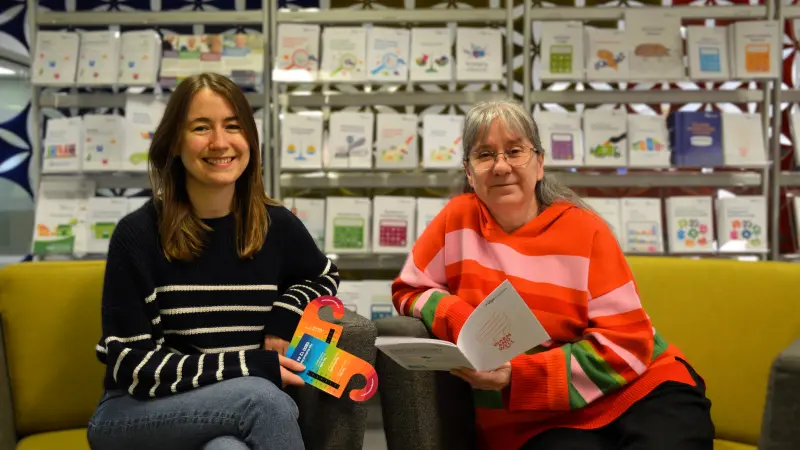Blog: Let’s talk about storytelling – schemes, themes and dreams
On the 18th October 2022 we welcomed 25 people to the first online storytelling event for our member groups. Chaired by Brian Devlin, an author from the Black Isle, this was an opportunity to listen to and speak about our storytelling experiences and ideas.
Schemes – We heard about the power of storytelling from those involved:
Cowal Elderly Befrienders, with their book of client’s stories ‘Lunch with Jacques Cousteau and Other Stories’, reminded everyone that with a little time, encouragement and listening we can appreciate someone’s complete life and who they really are.
Black Isle Cares, ‘Stories from the Black Isle’ a Storytelling Project with older people and primary school children was an example of synergy and the end being so much more than its individual parts.
Larkhall Volunteer Centre gave an excellent example of using stories in newsletter form to tell people who they are and what they do.
Jambo Radio are a natural storytelling platform. They have a live storytelling session planned which will be recorded.
Wick Voices have recorded the stories of 100’s of Caithness residents. These are shared online, and they have also set up a dialup phone so that the stories can be heard on this. The phone can be taken to care homes and nurseries. Wonderful seeing parents & grandparents showing their children how to use the phone!
Shopper-Aide in Campbeltown had their story told when they were given an Age Scotland award and had a wonderful film made of their activities.
There are many different ways of telling a story – visual, dance, poetry, theatre, artefacts:
Stories for mindfulness while walking.
Using pictures, old adverts and photographs in storytelling with social group.
Reminiscence in care homes using a reminiscence book.
Stories encouraged by gentle questioning (and listening), food, music/tunes.
Presentation of the end product (i.e., a book) is important as it shows that people care enough to make a beautiful permanent reminder.
Themes – Hearing from those involved in storytelling prompted very interesting discussion about the value of storytelling, with both the telling and the listening often being more important than the content. Benefits included:
For individuals: Emotionally beneficial, aid communication and language, increase self-esteem and sense of worth. Learning from each other.
For organisations: Promotes partnerships between organisations, opening up other opportunities and hearing the richness of experiences from the older people the service.
For society: Storytelling can be a beautiful tool to connect people.
Intergenerational storytelling work can help older and younger people to understand each other and be less “fearful”.With children & older adults both feeling they are helping each other; storytelling is mutually beneficial.
Village storytelling/Oral history can result in a better sense of heritage and culture. In storytelling, idioms come out.
Dreams – ideas and inspiration to take forward storytelling...
Ideas to take back to our groups and services:
Importance of providing a good environment for people to tell their stories.
Allowing a mixture of storytelling – fact & fiction – leads to creativity.
Opportunities for people to tell their stories, and for them to be heard.
Incorporate letters into storytelling projects as people seldom receive them nowadays.
People want to chat to someone from a different generation. There are challenges – but we can look for new and different ways to make it happen.
Leave date off books as that will keep them relevant.
Be creative in what you call your project – if the project is “sold” as a creative activity, then that can put people off
Ideas for the Age Scotland Storytelling Network. Attendees were enthusiastic about continuing with an Age Scotland Storytelling network in some form. Most felt on-line had worked well and was accessible to more people due to the cost and time involved in an in-person event. There was agreement that a face-to-face event would be good at some point.
The purpose and activities suggested included:
To hear what others are doing and share inspirational storytelling activities.
To ask questions about a particular storytelling project and understand more fully how a group/development worker went about it (stages, challenges, hints & tips etc).
To build a network of contacts.
Getting a steer on permissions, things to avoid, things to think about
Funding – Up-to-date information on good sources of funding
Hands-on activities geared towards hints and tips around the around the “how” of storytelling and storytelling projects – and good interview questions for the “what”.
Useful storytelling contacts:
About Storytelling - TRACS (tracscotland.org)- Scotland’s National Network for Traditional Arts and Culture have 160 registered story tellers all over Scotland who can work with groups – folk can get in touch if they would like to use a storyteller to work on projects & can provide signposting for funding.
Scottish Book Trust – Reading is Caring project. They work with care partners and people living with dementia and help carers to personalise and tailor the reading experience. This is the third year of the project, which is being rolled out across Edinburgh and the Lothians - they use storytelling and books to build relationships.
Cultural Activity in Care Homes (CACH) – Individual Life Stories with Care Home Residents, a Project of Forth Valley U3A. Residents’ eyes light up when they remember something they had forgotten about.
Prescribe Culture | The University of EdinburghUsing object packages delivered to home. Thinking of the different ways we are telling stories.


